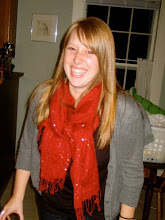Sunday, April 3, 2011
"Meaningful Work"
Written on March 19th, 2011 I spent last week at a Peace Corps The Gambia All Volunteer conference. We spent a lot of time talking about being a "high performance post," volunteers needing to have "meaningful work" and Peace Corps 50th Anniversary. All this talk, and an article from the New Yorker, written by Paul Hesser (just sent to me by my Dad) have caused me to pause and consider what the legacy of Peace Corps service is in Peace Corps countries, like the Gambia. I know it is probably a bit self-important to assume that my personal experience at one post can speak for the Peace Corps legacy as a whole. But in the spirit of 50th anniversary generalization I am going to take a risk and try my hand at answering the question--"What is the legacy of Peace Corps?" Since I cam to PC The Gambia I have heard a lot about PCV performance. When you research the Peace Corps you come across a handful of books and articles. These tell the stories of a small proportion of PCVs who, due to a combination of charisma, intelligence, infrastructure, resources and sheer good luck have served their communities in amazing ways and created visible change (they build schools, dig wells, start health centers) that they, or someone else, has been able to document and publicize. These volunteers are 1) amazing and 2) offer a great image of the Peace Corps to the world. But for every one volunteer who publish a book highlighting their amazing service there are hundreds whose service is not marked by measurable work or achievements but whose service and impact is no less important. I think PC has been around for 50 years because of both types of volunteers. One really cannot exist without the other. In my post alone we have volunteers with 9 to 5 jobs and projects to bring clean water to entire villages, we also have volunteers who spend their days socializing, go to sell milk at the local market with friends, play with babies and one volunteer who spent a large part of their service hanging out with one women, becoming such close friends that they were able to come out to the women before they left, in a country where homosexuality is extremely taboo. It is these stories of service that I most relate to and that I more and more am coming to see as Peace Corps 5o year legacy. I recognize the importance of meaningful work and a measurable impact as a way to ensure US taxpayer dollars are being spent effectively and that the talents of PCVs are being used but the reality is, often, we need to focus on the personal relationships we establish and see this as our legacy. I read somewhere recently that PCVs often get disillusioned with tradition notions of development and down play their impact, claiming "the people I served impacted me more than I changed them"--the author claimed that this all came from a place of unfounded modesty--I however can related to both these sentiments. And rather than coming from a place of modesty I think it all comes from a place which seeks to recognize the equality between the PCV and those they serve. I have an incredibly hard time receiving praise here because I feel my community members deserve equal (if not greater praise) everyday. So....taking all this into account, what is the 50 year legacy of Peace Corps according to Lindsey Green? As hippy-dippy as it may sound it is love and equality. If I leave anything behind I hope my family and community knows that I love and care for them. Despite the fact that I won some cosmic jackpot and was born an American it doesn't make me any better or worse than anyone else. By living in and becoming a member of a community PCVs attempt to serve from a place of equality rather than a place of outsider-ness or superiority. If the legacy of PC is anything it is that America is a country that produces many people who want to spread love and understanding through service. I would love to write a book about fundamentally changing the access to health care in my community but I would also be OK if my entire service could be summed up by simply drawing a big heart.
Subscribe to:
Post Comments (Atom)

No comments:
Post a Comment